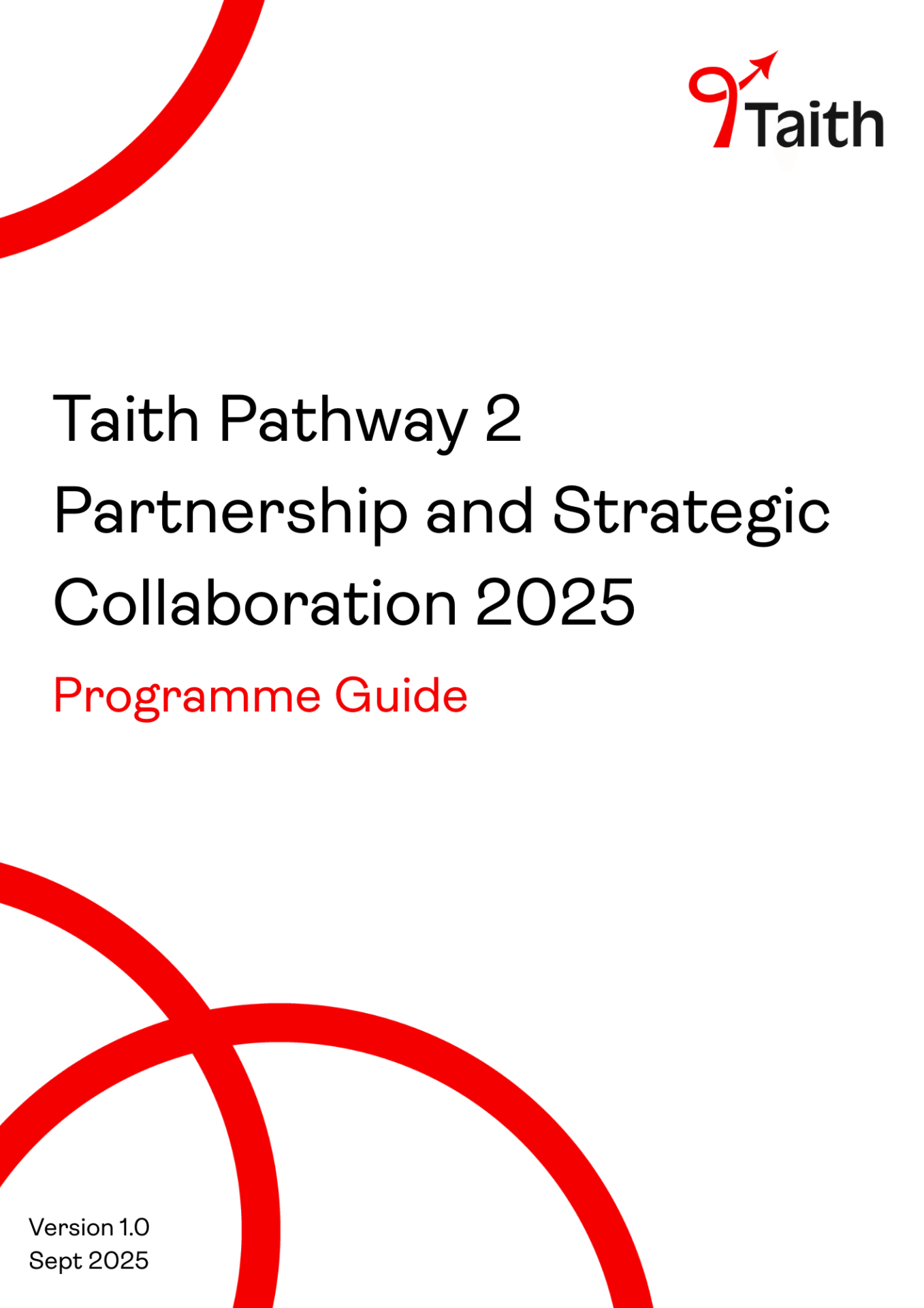3. Pathway information

3.1. Project duration
The duration for Pathway 2 2025 projects is 14 months.
3.2. Funding
It is not permitted to double fund activities already funded through other national or international funding programmes. However, co-funding of activities with other programmes is allowed. Double funding is when a second source of funding contributes to an activity cost that has already been fully funded. Co-funding is when two or more sources of funding contribute towards, but don’t go over, the actual cost. Where projects are co-funded, applying organisations should provide details of these arrangements in their application form.
Funding available per sector:
Sector | Indicative budget available |
|---|---|
Schools | £212,000 |
Youth | £96,000 |
Adult Education | £64,000 |
FE & VET | £128,000 |
Inclusivity and accessibility are a strategic focus for Taith, and the programme aims to fund as many and as wide a range of organisations as possible. As such, the maximum award for each Pathway 2 project will be £40,000. When completing the application form and grant calculator, please ensure that the total grant request does not exceed this limit and that the amount requested for your international partner(s) does not exceed 30% of the total grant request. Information on how to apply can be found in section 5. Taith funding is extremely limited, so please only apply for the level of funding that is necessary to enable your project to go ahead.
3.3. Themes
Pathway 2 projects must align with at least one of the Pathway 2 (2025) themes outlined below:
Developments in education
Projects under this theme should align with relevant developments taking place within the applying organisation’s sector:
- Curriculum for Wales
- National Youth Work Strategy for Wales and the recommendations set out in ‘Time to deliver for young people in Wales’
- Medr (including the strategic priorities and duties relevant for the Adult Education sector)
Diversity and inclusion
Examples within this theme could include (but are not limited to):
- bilingualism, multilingualism, and Welsh culture
- identity and belonging
- inequality, access, and social inclusion
Sustainability and climate change
Examples within this theme could include (but are not limited to):
- developments in climate change education
- green practices / green economy
- rural affairs
- de-carbonisation
- adaption and mitigation
3.4. Project outputs
The focus of Pathway 2 is the creation of impactful project outputs, that are of value to other organisations and the sector(s) across Wales.
Taith is open to innovation and welcomes applying organisations to propose project outputs that best work for them and their sector. Project outputs can be in a range of different formats such as written, visual, video, workshops etc. Examples of project outputs could include (but are not limited to):
- new models or methods
- resources/toolkits
- training/teaching materials
- digital resources/outputs
3.5. Dissemination
A key aspect of Pathway 2 is the requirement for project outputs to be shared. Pathway 2 is all about developing education in Wales, so the output/learning from your project must be shared with other organisations and the sector in Wales. You will need to demonstrate clearly how you intend to share the results of your project, and with whom. Dissemination activity must be appropriate and accessible to the sector(s), and relevant for the format and intention of the project output. Examples of dissemination activities could include (but are not limited to):
- an event/conference/workshop
- the sharing of resources through an online platform, or through an app (* please note, funding for such a resource where an annual fee occurs will not be covered by Taith)
- training sessions for individuals/organisations to develop knowledge and understanding of the chosen theme(s)
3.6. Inclusion support
Additional funding is available to support participants facing financial barriers to participation. There are two types of inclusion support available – for Disabled people and people with additional learning needs, and for people from disadvantaged backgrounds. This funding is based on actual costs, intended to cover the full cost relating to removing the barrier to participation. As such, it is expected that Grant Recipients source options that offer the best value for money.
Funding will be held centrally by Taith and administered once projects have started and participants are identified. Grant Recipients must apply for funding using an online form detailing the actual costs per participant and justification.
Disabled people and people with additional learning needs
Additional funding is available for Disabled participants and those with additional learning needs of up to 100% of actual costs for support directly related to their additional needs.
This may include aspects such as: preparatory visits to carry out risk assessments and ensure the placement has the necessary access and support in place; to fund additional staff members to support participants; and/or to pay for equipment, adjustments, resources necessary for participation.
Disadvantaged participants
Participants who meet one or more of the following criteria will be classified as disadvantaged and will be eligible for additional funding for travel related costs to support their involvement in a physical mobility:
- participants with a total household income below £26,225
- participants receiving Universal Credit or income-related benefits in their own name
- learners who are eligible for means tested free school meals
- learners who are care-experienced. This refers to anyone who has been or is currently in care or from a looked after background at any stage of their life, no matter how short, including adopted children who were previously looked after or those who access the Care Experienced Bursary in other parts of the UK
- participants who have caring responsibilities for a Disabled child, or an adult who, due to the illness, disability, mental health problems or addiction, cannot cope without their support.
- refugees and asylum seekers
- estranged students
Travel-related inclusion costs include costs of visas, passports, vaccinations, health insurance, appropriate clothing and luggage, as necessary.
